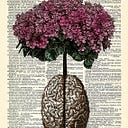Member-only story
A Heideggerian Approach to Psychotherapy
4 connections between Heidegger and clinical psychology
The German philosopher Martin Heidegger — exploring, as he did, a topic as deep and far-reaching as being itself — hoped that his insights would span well beyond his native discipline of philosophy, finding applications in various other fields of study.
Nowhere are Heidegger’s aspirations as valid as they are in the field of clinical psychology. For by studying being, Heidegger made important conclusions about human being — a subject which, obviously enough, has important bearings for the therapist’s work with clients.
In this article, we’ll explore four Heideggerian concepts and see what guidelines they reveal for the practicing psychotherapist.
The client as Dasein
How do we understand the client? Different theories of psychotherapy give us different, and sometimes contradictory, perspectives. The psychodynamic view sees a client as a set of conflicting drives. The cognitive-behavioralist view sees a client as a product of their thoughts. And so on.
Heidegger calls these ways of understanding a human being ontic. By that he means that they reduce a human being to the form of beings, which we understand as substances with properties. By using…
